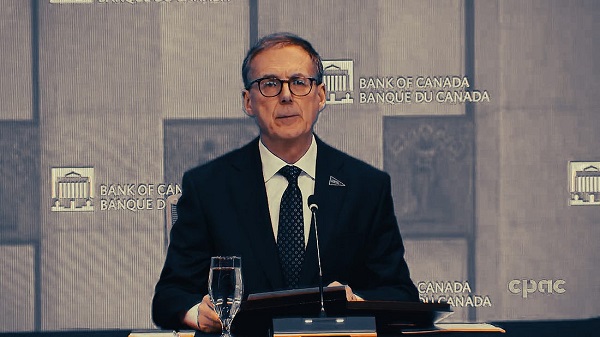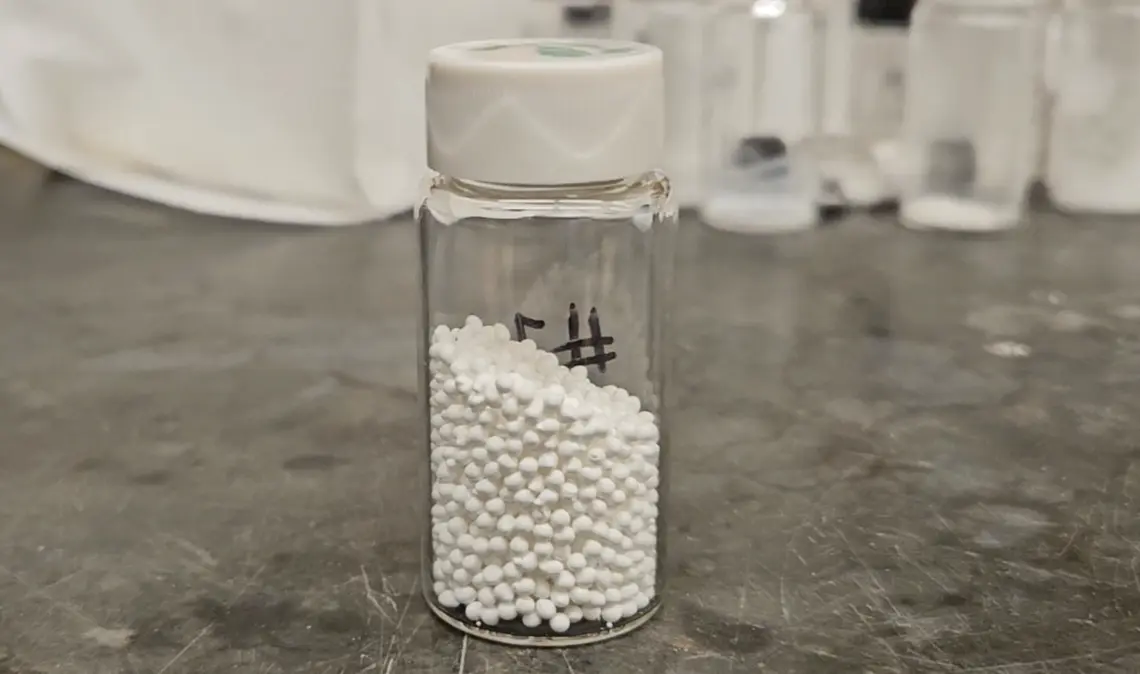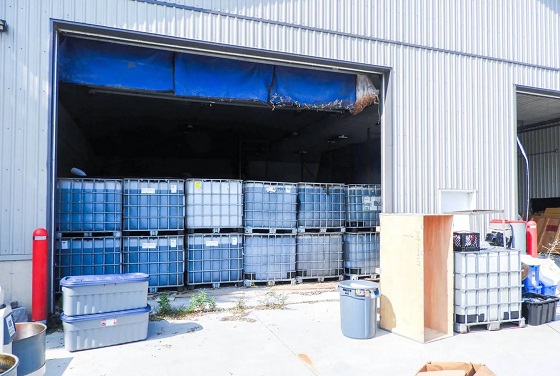Alberta
The Government of Alberta’s Report on Their COVID-19 Pandemic Response: Bryam Bridle

From COVID Chronicles

It confirms big problems with public health and provides a roadmap for how to do it right the next time around; let justice and healing begin.
The Government of Alberta has released a report following an investigation into the province’s response to the declaration of the COVID-19 pandemic.
The announcement can be found in this X post from, Eric Bouchard, a member of Alberta’s legislative assembly.

The report itself can be found here.
This is a report that is well-worth reading from beginning to end. The government identified numerous major problems with the handling of the pandemic response by Alberta Health Services. It is important to note that the current government in Alberta is not responsible for how the province responded to COVID-19. That responsibility falls upon the shoulders of the previous government. Thankfully, the current government is interested in knowing the truth, the whole truth and nothing but the truth. They also believe in being transparent with the public that they serve.
One of my biggest concerns from the report is identified in the opening letter where it states, “Our quest for answers was impeded by barriers, including reluctance from key stakeholders to engage with the Task Force’s mandate“. Shame on those involved with developing and implementing COVID-19 policies that failed to cooperate with officials from a sitting government that launched this investigation for the wellbeing of the public. The lack of transparency from whomever these key stakeholders are is unacceptable.
What I appreciate most about the report is that it is constructively critical, providing a path forward, that includes refocusing the mandate of public health services back onto the public as the primary clientele, as opposed to acting in the service of pharmaceutical companies. It serves as a blueprint to guide future responses. The path forward is based largely on traditional best practices that were established by truly following the science and forged in the successful management of historical outbreaks. It is highly reminiscent of the national pandemic response plans that existed in 2020; the ones that were supposed to be implemented for COVID-19 but that were thrown out within days of the pandemic being declared.
I can’t help but wonder how many lives could have been saved, how many hospitalizations could have been prevented, and how much healthier our population and current economies would be if this far more appropriate, science-based plan would have been implemented back in 2020.
This report from the Government of Alberta provides a precedent for the world as overwhelming numbers of people wake up and realize the need for massive reforms within public health.
Further, the report validates many of the concerns that a lot of people had about the response to COVID-19. The totality of evidence highlights how egregious it was to have vilified critical thinkers who simply wanted to engage in robust discussions out of genuine concerns for others and not fall victim to propaganda. Firing people who didn’t want to be coerced into having experimental medical interventions and debatable policies thrust upon them, de-licensing and disciplining independent-thinking health care professionals, and censoring experts under the nefarious disguise of ‘combating misinformation’ and ‘fact checking’; THEY WERE ALL EGREGIOUS WRONGS.
There should be fallout from a damning report like this. The gross mismanagement of COVID-19 has created a huge hot mess. The path forward starts with acknowledging this. Then we need to plot a course to navigate through this mess and thoroughly clean it up. These are essential if there is ever to be healing for all those that were victimized by power brokers that blindly followed propaganda and bought into the hatred and divisive tactics that were passionately modelled by the prime minister on down.
Building on this report, I am honoured to have been invited to speak at an upcoming event in Alberta. It is An Injection of Truth: Healing Humanity.

My talk will dovetail with this report from the Government of Alberta. The event is going to focus on the four pillars of healing. My presentation will start with ripping off the scab and exposing lies from public health agencies that contributed to a myriad of problems within the pandemic response. It will transition into providing some practical recommendations with respect to where we go from here.
Please consider posting your thoughts about this report in the comments section. Do you agree with aspects? Disagree with others? Were criticisms too light or too harsh? Were key issues missed? What do you think about the ideas for moving forward? This is opportunity to provide feedback. You have a sitting government that is showing a willingness to listen to all parties and perspectives. I will share feedback with the Members of the Legislative Assembly that I will be meeting in Alberta on March 3rd.

Alberta
Nobel Prize nods to Alberta innovation in carbon capture

From the Canadian Energy Centre
‘We are excited to bring this made-in-Canada innovation to the world’
To the naked eye, it looks about as exciting as baking soda or table salt.
But to the scientists in the University of Calgary chemistry lab who have spent more than a decade working on it, this white powder is nothing short of amazing.
That’s because the material they invented is garnering global attention as a new solution to help address climate change.
Known as Calgary Framework-20 (CALF-20 for short), it has “an exceptional capacity to absorb carbon dioxide” and was recognized in connection with the 2025 Nobel Prize in Chemistry.
“It’s basically a molecular sponge that can adsorb CO2 very efficiently,” said Dr. George Shimizu, a UCalgary chemistry professor who leads the research group that first developed CALF-20 in 2013.
The team has been refining its effectiveness ever since.
“CALF-20 is a very exciting compound to work on because it has been a great example of translating basic science into something that works to solve a problem in the real world,” Shimizu said.
Advancing CCS
Carbon capture and storage (CCS) is not a new science in Alberta. Since 2015, operating projects in the province have removed 15 million tonnes of CO2 that would have otherwise been emitted to the atmosphere.
Alberta has nearly 60 proposed facilities for new CCS networks including the Pathways oil sands project, according to the Regina-based International CCS Knowledge Centre.
This year’s Nobel Prize in Chemistry went to three of Shimizu’s colleagues in Japan, Australia and the United States, for developing the earliest versions of materials like CALF-20 between 1989 and 2003.
Custom-built molecules
CALF-20 is in a class called metal-organic frameworks (MOFs) — custom-built molecules that are particularly good at capturing and storing specific substances.
MOFs are leading to new technologies for harvesting water from air in the desert, storing toxic gases, and capturing CO2 from industrial exhaust or directly from the atmosphere.
CALF-20 is one of the few MOF compounds that has advanced to commercial use.
“There has been so much discussion about all the possible uses of MOFs, but there has been a lot of hype versus reality, and CALF-20 is the first to be proven stable and effective enough to be used at an industrial scale,” Shimizu said.
It has been licensed to companies capturing carbon across a range of industries, with the raw material now being produced by the tonne by chemical giant BASF.
Carbon capture filter gigafactory
Svante Inc. has demonstrated its CALF-20-based carbon capture system at a cement plant in British Columbia.
The company recently opened a “gigafactory” in Burnaby equipped to manufacture enough carbon capture and removal filters for up to 10 million tonnes of CO2 annually, equivalent to the emissions of more than 2.3 million cars.
The filters are designed to trap CO2 directly from industrial emissions and the atmosphere, the company says.
Svante chief operating officer Richard Laliberté called the Nobel committee’s recognition “a profound validation” for the entire field of carbon capture and removal.
CALF-20 expansion
Meanwhile, one of Shimizu’s former PhD students helped launch a spinoff company, Existent Sorbents, to further expand the applications of CALF-20.
Existent is working with oil sands producers, a major steel factory and a U.S.-based firm capturing emissions from other point sources, said CEO Adrien Côté.
“The first users of CALF-20 are leaders who took the risk of introducing new technology to industries that are shrewd about their top and bottom lines,” Côté said.
“It has been a long journey, but we are at the point where CALF-20 has proven to be resilient and able to survive in harsh real-world conditions, and we are excited to bring this made-in-Canada innovation to the world.”
Alberta
Thousands of Albertans march to demand independence from Canada

From LifeSiteNews
Thousands of Albertans marched upon the province’s capital of Edmonton this past Saturday in the “I Am Alberta Rally,” calling for the province to immediately secede from Canada in light of increasing frustration with the Liberal federal government.
The rally saw an estimated 20,000 to 30,000 people march on the steps of the Alberta legislative building, demanding that a referendum be held at once to allow Alberta to leave Canada.
“We can’t delay. We can’t slow down,” well-known freedom lawyer Keith Wilson said at the rally as he spoke to the crowd.
“This is our moment. This is our future. For our families, for our children, for Alberta. Alberta will be free.”
The group behind the rally, the Alberta Prosperity Project (APP), bills itself as a sovereignty advocacy group. As reported by LifeSiteNews earlier this year, the APP wants to put Alberta independence to a question to the people via a referendum.
The rally also comes after certain members affiliated with the APP such as Jeffrey Rath and Dr. Dennis Modry earlier the month met in Washington, D.C. with cabinet-level U.S. politicians to discuss Alberta’s potential independence from Canada.
U.S. President Donald Trump has routinely suggested that Canada become an American state in recent months, often making such statements while talking about or implementing trade tariffs on Canadian goods.
The APP on July 4 applied for a citizen-led petition presented to Elections Alberta that asks, “Do you agree that the Province of Alberta shall become a sovereign country and cease to be a province in Canada?”
The group is hoping to have the referendum on the ballot as early as next year and has accused the Liberal federal government of encroaching on Alberta’s ability to manage its own affairs.”
The group says an independent Alberta would allow it to “keep our resources, grow our economy, and reinvest in Alberta families, businesses and infrastructure.”
As it stands now, the referendum question has been referred to the courts to see whether or not it can proceed.
Alberta Conservative Premier Danielle Smith does not support a fully independent Alberta. However, she does advocate for the province to have more autonomy from Ottawa.
As reported by LifeSiteNews, Smith said her conservative government will allow but not support a citizen-led referendum on independence.
Despite not advocating for an outright separate Alberta, Smith’s government has not stood still when it comes to increasing provincial autonomy.
Smith’s United Conservative government earlier this year passed Bill 54, which sets the groundwork for possible independence referendums by making such votes easier to trigger. The bill lowers the signature threshold from 600,000 to 177,000.
As reported by LifeSiteNews last week, Smith’s government introduced a new law to protect “constitutional rights” that would allow it to essentially ignore International Agreements, including those by the World Health Organization (WHO), signed by the federal Liberal government.
The calls for independence have grown since Liberal leader Mark Carney defeated Conservative rival Pierre Poilievre.
Carney, like former Prime Minister Justin Trudeau before him, said he is opposed to new pipeline projects that would allow Alberta oil and gas to be unleashed. Also, his green agenda, like Trudeau’s, is at odds with Alberta’s main economic driver, its oil and gas industry.
-

 National21 hours ago
National21 hours agoCanadian MPs order ethics investigation into Mark Carney’s corporate interests
-

 Business2 days ago
Business2 days agoCanada has given $109 million to Communist China for ‘sustainable development’ since 2015
-

 Banks1 day ago
Banks1 day agoBank of Canada Cuts Rates to 2.25%, Warns of Structural Economic Damage
-

 Opinion2 days ago
Opinion2 days agoBritish Columbians protest Trump while Eby brings their province to its knees
-

 Business1 day ago
Business1 day agoFord’s Liquor War Trades Economic Freedom For Political Theatre
-

 International2 days ago
International2 days agoStrongest hurricane in 174 years makes landfall in Jamaica
-

 Bruce Dowbiggin8 hours ago
Bruce Dowbiggin8 hours agoGet Ready: Your House May Not Be Yours Much Longer
-

 Alberta16 hours ago
Alberta16 hours agoNobel Prize nods to Alberta innovation in carbon capture






